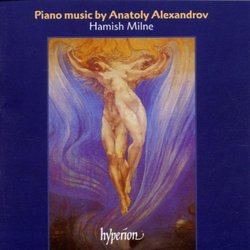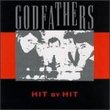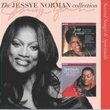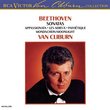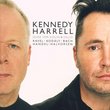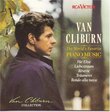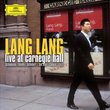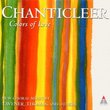| All Artists: Hamish Milne Title: Piano music by Anatoly Alexandrov Members Wishing: 1 Total Copies: 0 Label: Hyperion UK Release Date: 6/11/2002 Album Type: Import Genre: Classical Styles: Chamber Music, Historical Periods, Classical (c.1770-1830) Number of Discs: 1 SwapaCD Credits: 1 UPC: 034571173283 |
Search - Hamish Milne :: Piano music by Anatoly Alexandrov
CD DetailsSimilar CDs
Similarly Requested CDs
|
CD ReviewsAttractive Neo-Romantic works played w/ warm abandonment. David A. Hollingsworth | Washington, DC USA | 07/14/2002 (5 out of 5 stars) "Among the chief attractions of this CD album, besides the music and Milne's poise yet imaginative playing, is an excellent booklet essay by Christoph Flamm. His analysis on individual pieces clearly stands up as among the best in the recording business (high up in Hyperion's exemplary standard of presentation). Yet, pay close attention to page two, and his writing becomes even more thought-provoking. The general argument Flamm makes is that analyzing and understanding music in the former Soviet Union is immensely the more complex state of affairs than most average listeners realize (and record companies and literature on this subject must share some of the blame for this void of knowledge and awareness I feel). It isn't enough to study the avant-garde composers of the 1920s and the 1960s (and beyond), as Flamm aptly points out. It is not even enough to simply study and understanding the life and music of Shostakovich and Prokofiev. No! As Flamm points out, "To judge the music of this era according to the degree of its modernity is a failure in methodology that is based on an outmoded belief in progress." Look at Myaskovsky, Shebalin, Popov, Knipper, et al. Did they also represent progress, that is, composing music under Socialist Realist policies while making it at least an ounce authentic and credible under the principles of Russian musical traditions, which the policies attempted to destroy and almost did so by the mid-1930s? How about composers of the former satellite nations, like the Ukraine, Latvia, and Estonia (among twelve others)? These composers, such as Lyatoshynsky, Ivanovs, and Tubin for instance, put up a pretty good stance against the otherwise unbearable weight of Socialist Realism (especially during the 1930s through the 1960s). Instead, to get a more rounded picture of Soviet music, other composers especially during the height of Stalin's power must be studied and analyzed also. This "picture" shows the effects repression had upon artistic freedom and growth and how artists and musicians responded and adapted to policies that virtually made each and every day a matter of life and death. This is why Boris Schwartz "Music and Musical Life in Soviet Russia", David Fanning's Gramophone article "Symphonies in a Cold Climate", and the ongoing Olympia series of Myaskovsky's music must be deemed as treasures. Artistic freedom was won, but with a series of huge prices. Anatoly Nikolayevich Alexandrov (1888-1982) is remembered chiefly as a composer of songs, which prop in recitals primarily in Russia on occasions. However, Anatoly's name shall not be confused with Alexander Vasilyevich Alexandrov (1883-1946), the composer of the Soviet national anthem (discontinued once Yeltsin became president of the Russian Federation in 1991 and re-instituted once Putin was elected president, though with a different text). Alexandrov, a longtime composition professor of the Moscow Conservatory, was highly prolific, composing his Visions through his 91st year (his Tchaikovsky/Taneyev - ladened Symphony in C was completed in 1965). And to claim him as a neo-romantic composer is quite an understatement though not quite as simple. The piano works on this disc embody the spirit of Scriabin, Rachmaninov, Medtner, and even Bortkiewicz (with pinches of Tchaikovsky especially in the Fourth Sonata of 1922 (rev. in 1954). But in many ways, they stand up pretty well on their own. Like Bortkiewicz in particular, Alexandrov rarely lets his ideas flag. There are some real poetic moments especially in the Fourth Sonata (in the second movement for instance), the Romantic Episodes, and Visions. The harmonious language is of clarity and poignancy and the thematic ideas holds up well; the Third Sonata (evoking Medtner) is somewhat enterprising. The music for the most part does not really belies the musical ideals of Soviet Realist art (the adagio movement of Visions reminds me a bit of Mosolov and the youthful Myaskovsky whereas the waltz movement from Elegy and Waltz of 1964 somewhat reminiscences the world of jazz). Instead, much like Myaskovsky and Kabalevsky (and even Shebalin), Alexandrov remained deeply rooted in Russian musical tradition while being exploratory in the process. The Six Preludes is temperamentally and stylistically Scriabinian. But turn to the Fourth Sonata, and his sense of eloquence and discourse becomes even more engaging. The Obsession passe, dedicated to his close friend Stanchinsky, is remotely avant-gardish. But turn to the slow movement of his Third Sonata, and you'll wonder what Lyapunov would've thought of it. Hamish Milne, well acclaimed for his Medtner series under the CRD label, plays with warm abandonment and verve and I am especially awed at his renditions of the slow movements, particularly of the sonatas. He conveys the extra layers of magic in these works and the Visions is done was every ounce of compelling restraints. The playing is narrative and Milne's sense of indulgence does not overwhelm the spirit and essence of the music. The recording is first class, capturing every detail of the playing flawlessly. A wonderful continuation of Hyperion's series of Russian/Soviet piano music and I do hope that Milne will provide us with more works of this rather interesting composer (and perhaps those of Shebalin and Lyatoshynsky).So,.... go out and indulge, as I did so unregrettably!" Tribute to Stanchinsky Nicholas Hodgson | Paisley Parking Lot... | 07/03/2002 (5 out of 5 stars) "A wonderful collection of pieces composed by yet another sadly unknown Russian Piano master. A peer of the amazing Stanchinsky, Alexandrov (1888-1982) wrote a large amount of piano pieces which contain many stylistic/dynamic points of departure . Scriabin is an obvious reference. "Obsession passee" (A long forgotten madness) is dedicated to Stanchinsky and contains many echoes of that obscure composer's work"
|

